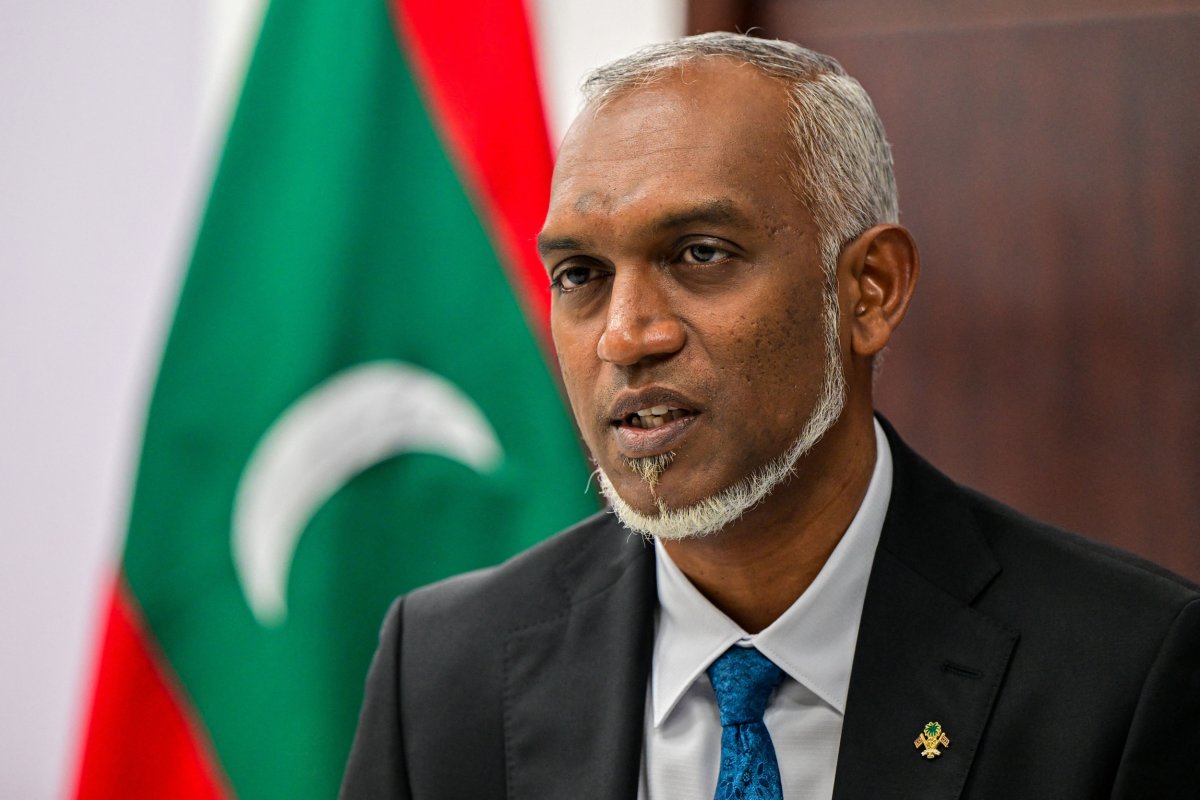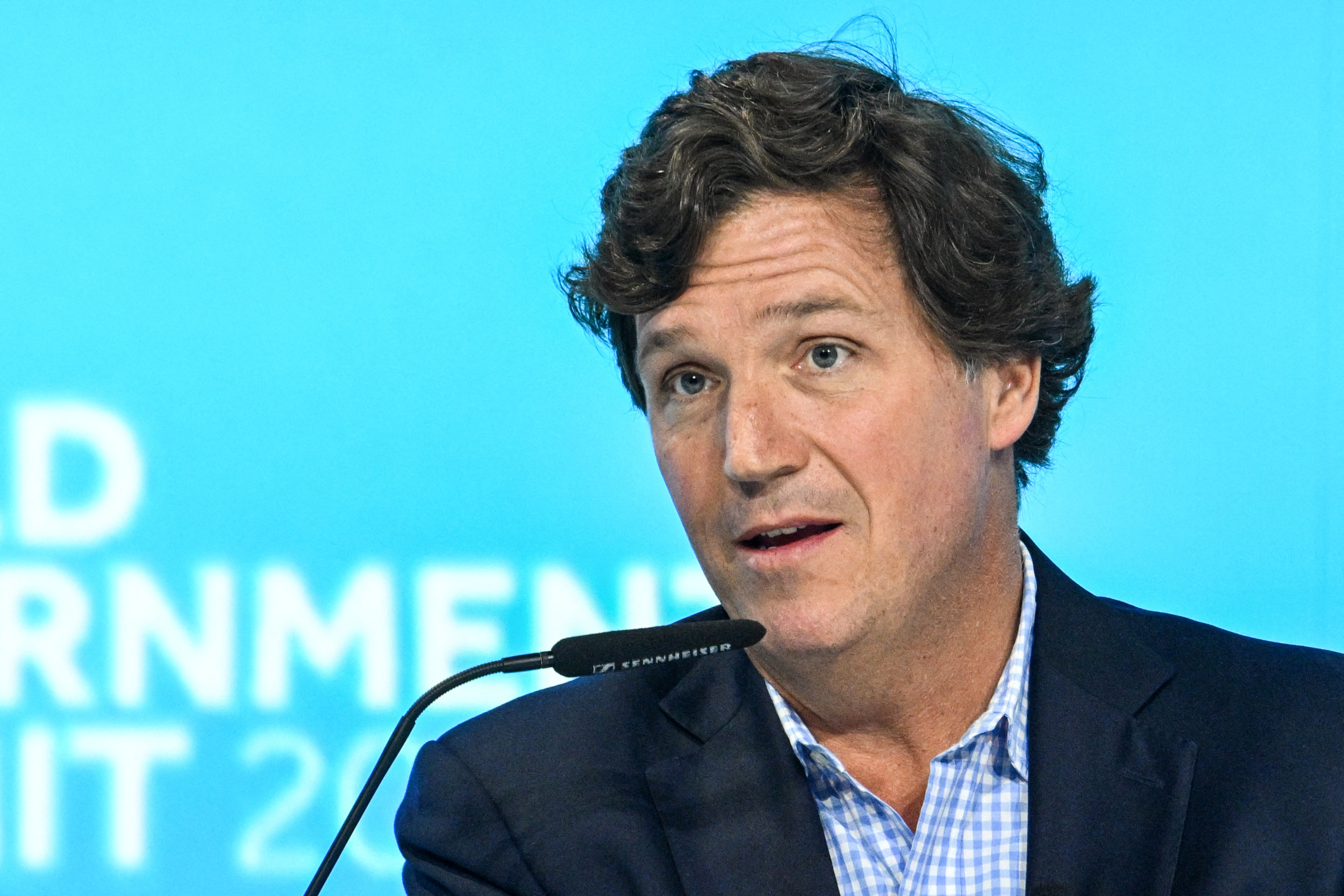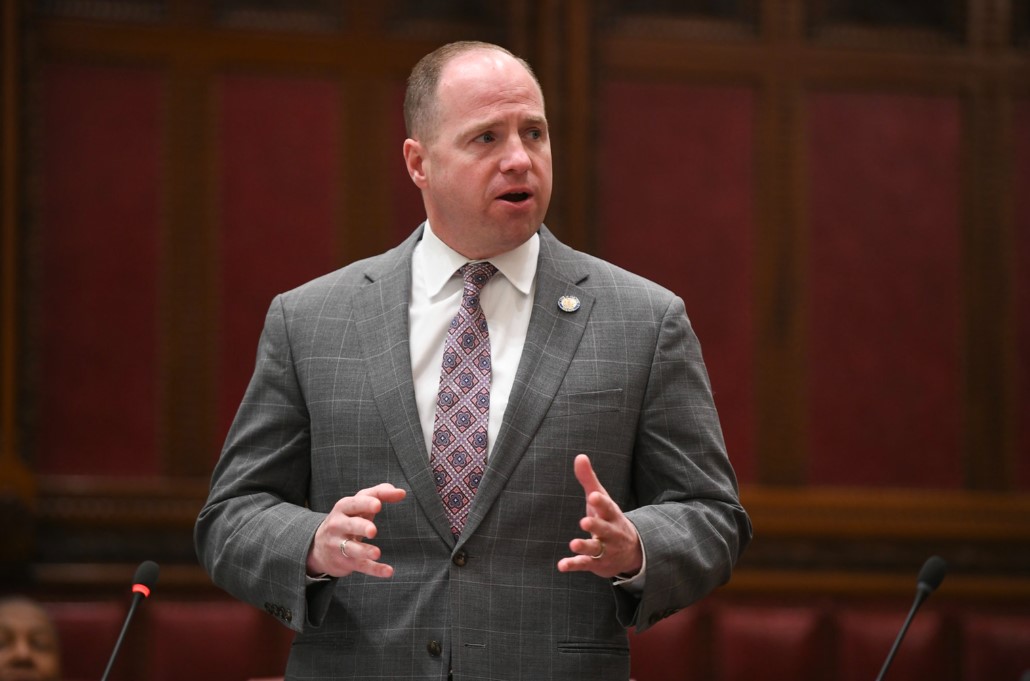A high-profile diplomatic spat between the Maldives and India could work to China's strategic advantage as the island nation's new leader pivots away from New Delhi toward Beijing.
President Mohamed Muizzu landed in southern China on Monday as part of a five-day visit to the country, signaling the first meaningful shift in Male's foreign relations. New Maldivian presidents have historically picked New Delhi over Beijing as their first stop, in a sign of deference to South Asia's largest economic and military power.
Muizzu's interest in developing closer relations with China instead of India, its traditional partner of choice, could hamper America's search for friendly capitals in the Indian Ocean amid an intensifying geopolitical rivalry Beijing, which is also seeking to exert more influence in developing nations across the Indo-Pacific region.
In moving away from New Delhi, Muizzu revealed a change in his government's primary interests—a blow to the United States in the region. The Maldives president has already engaged with local Chinese officials on the ground, setting the stage for a series of meetings with high-ranking Chinese leaders this week.
The island nation climbed the list of American interests when the U.S.'s first embassy in Male opened last year. The Maldives sits on the strategic thoroughfare of maritime routes connecting the Indian Ocean and the Arabian Sea.
Last week, U.S. Secretary of State Anthony Blinken congratulated Maldivian counterpart Moosa Zameer over the phone.
"The secretary reaffirmed the United States' commitment to strengthening cooperation with the Maldives, a key partner in a free, open, secure, and prosperous Indo-Pacific region," said a readout carried by the State Department.
Blinken and Zameer "discussed the importance of defense cooperation, economic growth, combating the climate crisis, and democratic governance," the statement said.
Muizzu's visit to China followed a diplomatic spat between the Maldives and India, which has pushed the two traditional allies apart.
The controversy erupted after Prime Minister Narendra Modi shared images from a visit to India's Lakshadweep archipelago, which drew ridicule from Maldivian social media users and government officials for the apparently scripted attempt to promote the islands' beaches.
It led to a backlash among Indians who sought a boycott of the Maldives—one of the most popular vacation sites for the Indian population. The Maldivian government suspended three ministers for inappropriate comments in the aftermath.

The Maldives leader is scheduled to meet with China's President Xi Jinping and Premier Li Qiang in Beijing later this week. The engagements are expected to result in agreements in infrastructure and tourism, marking a step forward in bilateral relations.
"China is and will continue to be a key partner in the social and economic development of the Maldives," Muizzu said in a written interview with China's official news service Xinhua before his departure.
According to Xinhua, Muizzu was optimistic about the prospect of reinvigorating his country's partnership with the world's largest economy, especially in trade, and with a view to continuing the surge in tourism that has followed China's post-pandemic reopening.
Maldives tourism ministry statistics showed the island nation welcomed over 1.7 million tourists last year, with a substantial number coming from India, Russia and China.
Muizzu also praised the Belt and Road Initiative, Xi's signature foreign policy, under which the Maldives previously received loans for projects such as the Sinamale Bridge, the country's first inter-island roadway originally known as the China-Maldives Friendship Bridge.
However, Maldives owes a significant amount of debt to China for previous hard infrastructure projects—$935 million in sovereign guarantees on Chinese company loans and an additional $600 million directly to Beijing.
In 2019, Mohamed Nasheed, an adviser to former Maldives President Ibrahim Mohamed Solih, said Male could be as much as $3 billion in the red—a massive debt for a country with a GDP of $4.9 billion.
Uncommon Knowledge
Newsweek is committed to challenging conventional wisdom and finding connections in the search for common ground.
Newsweek is committed to challenging conventional wisdom and finding connections in the search for common ground.
About the writer
Aadil Brar is a reporter for Newsweek based in Taipei, Taiwan. He covers international security, U.S.-China relations, and East Asian ... Read more
To read how Newsweek uses AI as a newsroom tool, Click here.








